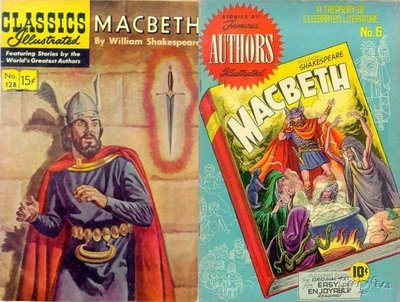CFP: Shakespeare and Comics (collection; no date specified)
Shakespeare and Comics
edited by
Jason Tondro (University of California, Riverside)
and K. A. Laity (College of Saint Rose)
edited by
Jason Tondro (University of California, Riverside)
and K. A. Laity (College of Saint Rose)
The scope of potential submissions is broad, perhaps beginning with examinations of particular plays or characters, questions of adaptation and revision, and the translation of drama to the comics form. Authors might analyze the use of Shakespeare himself as a character, or turn their talents to specific writers and artists who have returned to Shakespearean characters, plays, and themes on more than one occasion. The very presence of Shakespearean elements in comics at all suggests questions of appropriation, valuation and audience.
One requirement is especially noteworthy: The contents of this collection should demonstrate not only the expected proficiency with comics scholarship, but also an awareness of relevant Shakespeare criticism which bears on the author’s specific topic. The final “Shakespeare and Comics” project must be the comics scholar’s emissary to Renaissance studies, showing an awareness of all the criticism that the Shakespeare scholar would expect while also introducing that reader to what is, in all likelihood, the great mystery that is comics scholarship.
Proposals, abstracts, and questions should be directed to Jason.Tondro@gmail.com.
Image Credit: Cover to Classics Illustrated #128, Classics Illustrated.com; Cover to Stories by Famous Authors Illustrated #6, Tebeosfera. Copyright © the respective copyright owners. Definitely check that Tebeosfera link - it's a lengthy academic essay by Jesús Jiménez Varea on Macbeth comics (en Español).
Labels: academic, adaptation, cfps, Shakespeare




2 Comments:
What strikes me about these two covers is, perhaps oddly, Macbeth's "costume." The winged helmets invoke Wagnerian opera, sure, which is just odd. But what I'm interested in the tunic and cape.
You've basically got Macbeth-as-Superman here. Could this have been a conscious ploy on the publishers' parts to make M look like a superhero? Or at least like a hero, rather than a scheming-if-uncertain regicide? Creating such an association in young readers' minds would almost certainly lead to higher sales - er, of course, I mean "more education." I would put money on that, if I had any...
Hi, Gene. This is Jesus Jimenez-Varea, the author of that essay on Macbeth comics. Thank you for recommending it.
JJV
Post a Comment
<< Home